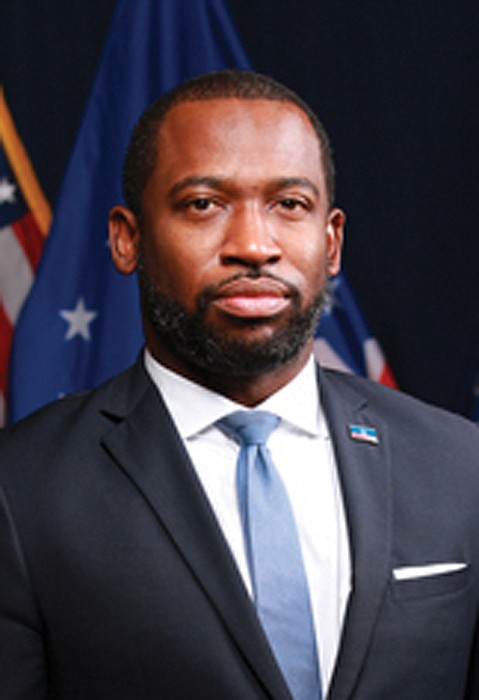Mayor’s revised police review board proposal gains support
Jeremy M. Lazarus | 9/22/2022, 6 p.m.
Richmond appears to be moving closer to establishing an advisory Civilian Review Board to make recommendations in cases of alleged police misconduct that result in residents being killed, injured or suffering unwarranted physical or verbal abuse.
Mayor Levar M. Stoney, whose first proposal six months ago drew a thumbs down from City Council, has returned with a revamped product that is already winning a thumbs up from some.
When he introduced the revised proposal Monday night, he did so with the support of four members of the city’s governing body, Andreas D. Addison, 1st District;Ann-Frances Lambert, 3rd District; Stephanie A. Lynch, 5th District; and Dr. Michael J. Jones, 9th District.
“This new proposal reflects a collaborative effort with members of council” Mayor Stoney stated in introducing the proposal that is headed for committee review and a potential vote within a month.
“The result is a CRB that will be equipped to respond to the needs of our community, ensure accountability and enhance the public safety of all Richmond residents,” he said.
To pass, at least one more member must agree the proposal is sound.
The idea of a police oversight board for Richmond has popped up periodically over the past three decades, but went nowhere until the 2020 protests against police brutality. The Richmond demonstrations, sparked by the Minneapolis Police murder of George Floyd, suddenly gave the idea political momentum.
Still, the plan headed to council once again rejects creation of a strong, independent CRB that could bypass the chief of police and investigate and impose discipline on officers and also revamp police policies and procedures.
That kind of robust CRB was recommended by a committee the council established to consider a CRB, but none of the nine council members introduced legislation to create such a police oversight board.
Dr. William Pelfrey Jr., an expert on CRBs who served as an adviser to the mayor, recommended against a strong CRB based on the small number of serious complaints that are filed annually by civilians against city officers and the rarity of deaths involving actions of Richmond officers.
The key change in the revised proposal is the insertion of the CRB into the internal review process of cases of police-involved shootings, of death or serious injury to a person already in police custody, or of physical or verbal abuse meted out to an individual.
In the original proposal, the civilian board was authorized to consider the “accuracy, completeness and impartiality (of the internal investigation) and the sufficiency of any discipline imposed” – in other words, after the police chief took departmental action.
Under the new proposal, the CRB could get police documents and begin its review after internal affairs completed its investigation “but before discipline is imposed.”
Among those not consulted as the proposal was crafted were representatives of rank-and-file police officers.
According to several legal experts, the thorny nature of personnel law is likely to limit the board’s ability to take testimony in public or even hold open discussions about specific cases, given that their review could implicate the legal rights of police officers alleged to have engaged in wrongdoing.
As envisioned in the legislation, the CRB, after its review, would make recommendations to the police chief on discipline in a specific case or on changes to policies and procedures based on their findings – but the advice would not be binding. However, the department would need to provide a written response to any board recommendations within 30 days of receipt.
Just as in the original proposal, the civilian board would have to hold up on any cases which Commonwealth’s At- torney Colette W. McEachin or her staff were investigating or that led to charges and court action.
The board also could not consider reviewing a case that became entangled in a civil suit.
The revised proposal would create a board of eight members, four appointees of the council and four of the mayor, with none connected to the Police Department. The old plan called for seven members, with one appointed by the police chief. The chief still would appoint a department member to serve as the liaison between the board and the department.







